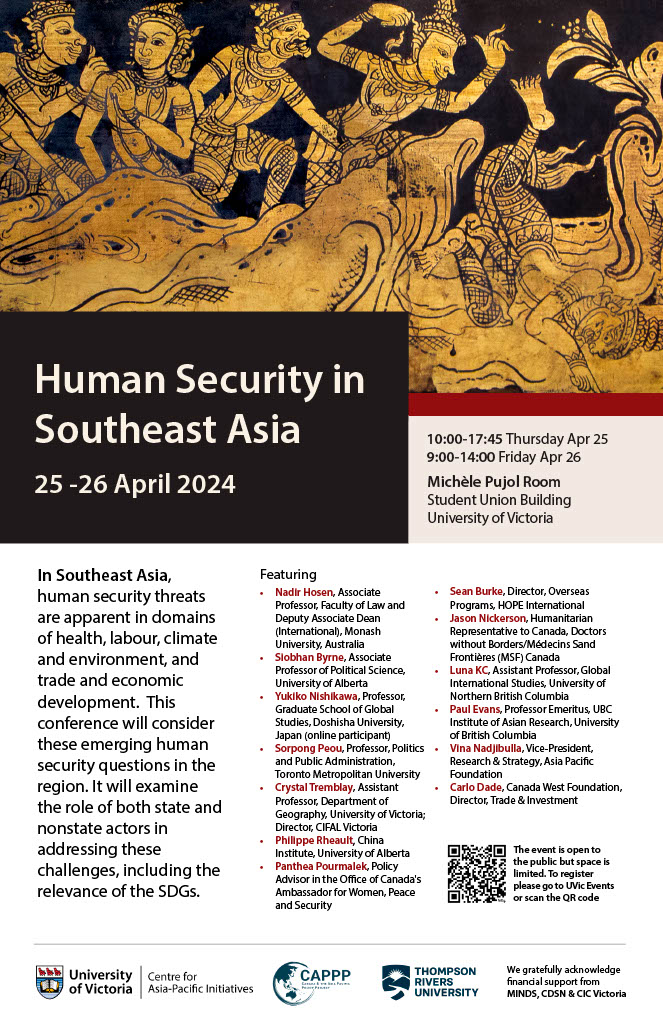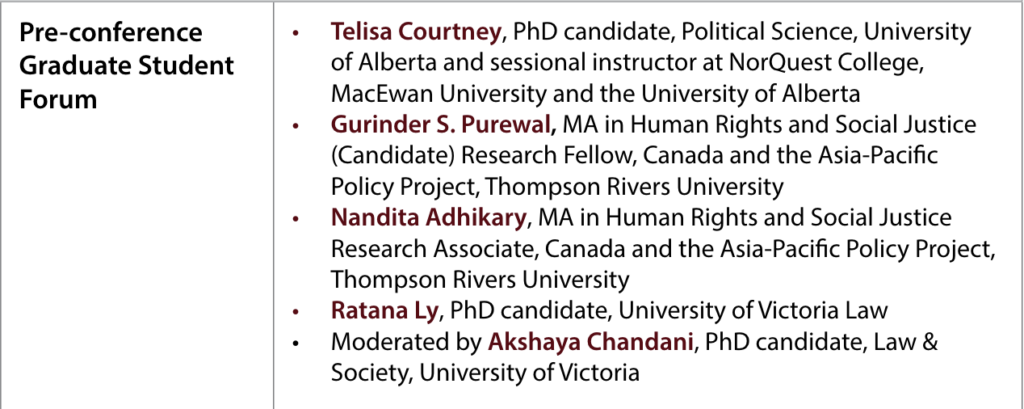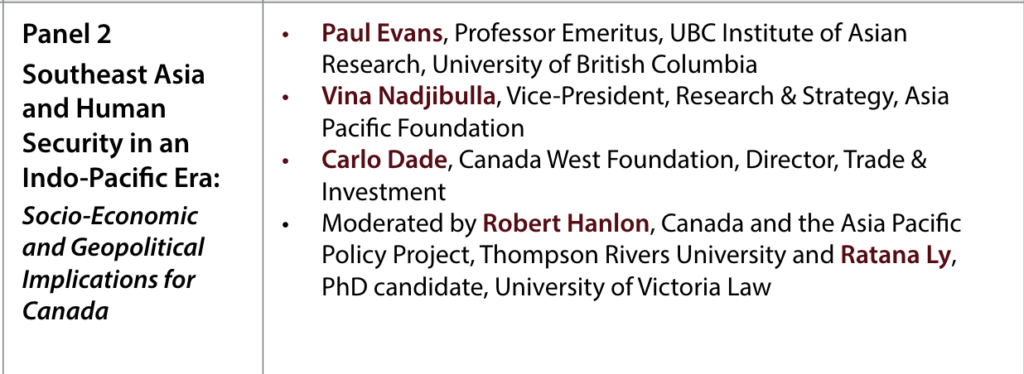The Human Security in Southeast Asia conference was hosted by the Centre for Asia-Pacific Initiatives (CAPI), University of Victoria, in partnership with the Canada and the Asia-Pacific Policy Project (CAPPP) at Thompson Rivers University.
The conference included a graduate student panel and roundtable discussions on health, gender, development, trade and labour. Featured was CAPI’s 16th Roundtable on Southeast Asia in the Global Context, which included topics on Non-State Actors and Human Security in Southeast Asia, Religion, Civil Society, and Indigenous/EthnicMinorities. https://www.uvic.ca/research/centres/capi/assets/docs/misc-docs/human-security-web.pdf
The concept of Human Security represent a shift in focus away from the traditional view of state-centric national security to the personal and societal dimensions of security threats (as well as the intricate means necessary to tackle these large-scale issues).
In Southeast Asia and the Indo-Pacific Region, human security threats are evident in the spheres of labour, climate, health, environment, trade and economic development. Prompted by these challenges, this conference considered emerging human security questions of the region: Do governments have the capacity, autonomy and foresight to address these complex challenges?

The full conference program and bios of speakers are available here: https://www.uvic.ca/research/centres/capi/research/home/projects/southeast-asia-global-context/index.php



